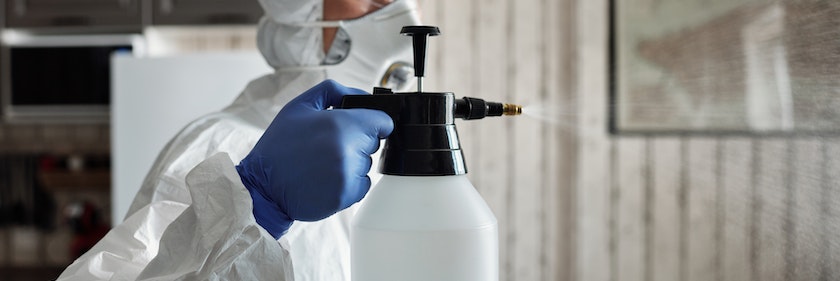
Our Antiviral sanitization cleaning service is a process aimed at reducing or eliminating the presence of viruses on surfaces, objects, or in a specific environment. This process involves using various disinfectant agents or technologies designed to target and neutralize viruses, thus helping to prevent their spread and potential transmission to humans.
Stefan SS Cleaning follows the listed steps in antiviral sanitization:
1. Surface Preparation: Clearing and cleaning surfaces from dirt, dust, and debris to ensure effective contact of the disinfectant with the virus.
2. Disinfectant Application: Applying appropriate disinfectants that are proven to be effective against viruses. These disinfectants may include chemicals like hydrogen peroxide, quaternary ammonium compounds, bleach solutions, or other EPA-approved antiviral agents.
3. Contact Time: Allowing the disinfectant to remain in contact with the surface for a specified period. This "dwell time" ensures that the disinfectant has enough time to act on the virus and achieve effective deactivation.
4. Mechanical Action: In some cases, physical actions like wiping, scrubbing, or spraying might be needed to ensure even coverage and contact of the disinfectant with all surfaces.
5. Personal Protective Equipment (PPE): The individuals performing the sanitization process should wear appropriate PPE, such as gloves, masks, and protective clothing, to minimize their exposure to potentially harmful chemicals and pathogens.
6. Proper Ventilation: Ensuring good ventilation during and after the sanitization process helps disperse any fumes from the disinfectants and allows the area to be safe for re-entry.
7. Adherence to Guidelines: Following recommended guidelines and protocols for effective antiviral sanitization is essential. Different viruses might require specific procedures and disinfectants for successful eradication.
8. Frequent Sanitization: Regular and frequent antiviral sanitization is particularly important in high-traffic areas, shared spaces, and locations where virus transmission is a concern.
9. Specialized Equipment: In advanced cases, specialized equipment like UV-C light devices or electrostatic sprayers might be used to enhance the efficiency of the sanitization process.
10. Monitoring and Evaluation: Regular monitoring and assessment of the sanitization process's effectiveness are crucial to ensure that the desired level of viral reduction is being achieved.
It's important to note that antiviral sanitization can greatly reduce the risk of viral transmission. Combining proper sanitization with other preventive measures like personal hygiene, mask-wearing, and social distancing provides a comprehensive approach to reducing viral spread.
We are more than happy to give advice on which solution is most suitable for your needs, depending on your Cleaning Serviecs. Why not ask us to view your property and discuss the various options with you now. Our advice is free!